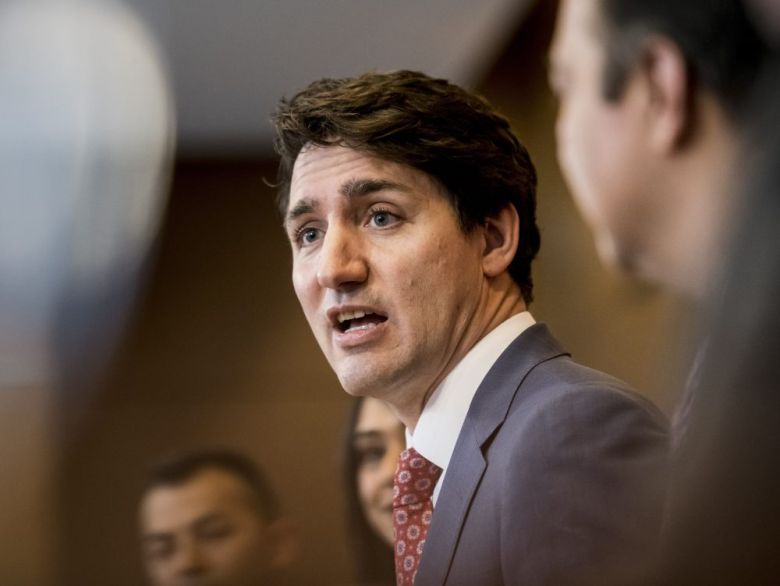The consensus forecast of the impact of a United Conservative Party victory in Alberta on the rest of the country was: trouble ahead. Hadn’t its leader, Jason Kenney, promised to “stand up” for the province’s oil and gas industry, and “fight for a fair deal” in the federation?
Didn’t the party platform promise to cut off exports of oil to British Columbia should its government persist in obstructing the Trans Mountain pipeline expansion? Didn’t it also promise a referendum on the federal equalization program, with which to back the province’s demands for its reform?
Most of all, wasn’t the party pledged to repeal the province’s carbon tax, and to abolish the previous government’s cap on emissions from the oil sands — both in direct opposition to federal climate change policy?
And yet, there was Kenney on election night, sounding a statesmanlike appeal for national unity. The speech included no references to referendums or turning off the taps — but more than 40 mentions of “Canada,” “Canadian” and variants.
A substantial portion of the speech was delivered in French, in an effort to persuade “our friends in Quebec” that “nous avons besoin de pipelines pour la prospérité de tous les Canadiens, y compris des Québécois!” There was even a pledge to “renew the promise of confederation as a true economic union… putting behind us all the barriers to trade and mobility that make us poorer.”
So perhaps Kenney may not be quite the bad boy of the federation he has been made out to be. To be sure, he is fresh from campaigning for election in a province where, as he put it Tuesday night, there is “deep frustration … a sense that we have contributed massively to the rest of Canada, but that everywhere we turn we are being blocked in and pinned down.”
But the chances of the new government making good on its more extravagant threats must be considered remote. Both appear in the platform, it’s worth noting, in the conditional. “Turn off the taps” legislation would be used “should (BC) continue to obstruct pipelines.” A referendum on equalization would be held “if substantial progress is not made on construction of a coastal pipeline, and if Trudeau’s Bill C-69 (legislation establishing a new approval process for pipelines, widely viewed as likely to impede them) is not repealed…”
Both, moreover, would almost certainly be of no force or effect, being either unconstitutional or impossible to enforce. And neither, if enacted, would do much to advance Alberta’s interests. Cutting off oil exports to B.C. would do more harm to Alberta energy producers than B.C. energy consumers, who could quickly source their oil elsewhere, while the reforms Alberta seeks to equalization, whatever their other merits, would not return a nickel to the province, or its taxpayers.
So chalk these up, probably, to campaign exuberance. But the climate change stuff — that’s real enough, isn’t it? Sort of. Abolishing the province’s $30-a-tonne carbon tax isn’t so much the issue — in that event the federal “backstop” would simply kick in, and even if it did not the UCP itself has pledged to replace it with something very like a carbon tax, only on large emitters. The bigger red flag is the promise to eliminate the 100 megatonne cap on oilsands emissions.
There is little doubt of the cap’s importance to achieving the federal goal of reducing Canada’s overall emissions by 30 per cent from 2005 levels by 2030, in line with our commitments at the Paris Agreement on Climate Change: a target we are nowhere close to meeting, nor even visibly headed toward. (Emissions rose to 716 MT in 2017, leaving them less than two per cent below their 2005 benchmark, with just 13 years to cut the other 28 per cent.)
The question is how the feds should respond. Much commentary has suggested the prime minister would have no choice, in the event Kenney lifts the cap, but to renege on his oft-stated pledge (“It will be built”) to see Trans Mountain through to completion. “The path (Kenney’s) on will likely force Prime Minister Justin Trudeau to reject the Trans Mountain pipeline,” the economist Andrew Leach has written in an influential piece in Maclean’s.
The notion that there is some necessary link between the two — no emissions cap, no pipeline — has no actual basis in logic, you understand. It may have suited the prime minister politically at one point to link the two (“we could not have approved this project” without it, he said in 2016), but there it ends. In policy terms, the case for or against either stands on its own.
Whether Trans Mountain is built, in particular, makes no difference whatever to whether or not we meet our Paris targets: that’s a question of how much oil is pumped, not how or where it is shipped. Neither does it matter to the fate of the planet. The world will still be burning oil, on any reckoning, for several decades. It might as well burn ours.
It is understandable the prime minister would be disappointed at Alberta’s change of course. That does not justify him in punishing the province for electing a government not to his liking. For rest assured that is how it would be seen. If you really want to see a national unity crisis in this country, it won’t come from Kenneyesque stunts like equalization referendums. It would come from a federal government telling Alberta it may not bring its main source of wealth to market.
Or leave all that to one side. Is it seriously to be suggested the federal government, having shelled out $4.5 billion of the taxpayer’s money to buy the Trans Mountain project, would then cancel it? That kind of thing can get you a reputation.






























